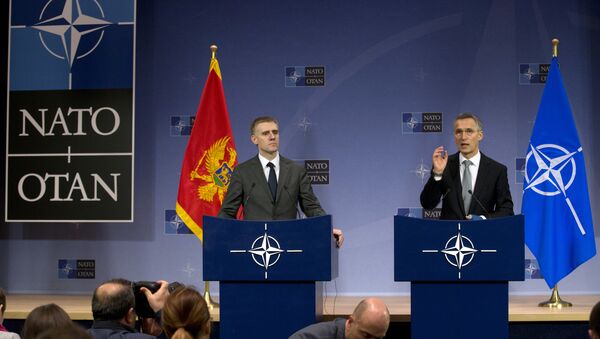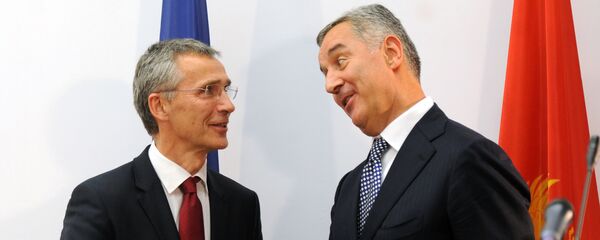NATO’s invitation to Montenegro to join the military alliance showed that the United States is on the offensive to expand its influence in the Balkans and infringe on Russia’s interests, Jorgen Samso wrote for Politico.
Montenegro
On Wednesday, the alliance invited Montenegro to start accession talks on NATO membership.
“Now, with Montenegro, NATO is taking the Balkans piece by piece,” said Stefano Stefanini, former NATO ambassador to Italy, cited by the newspaper.
However, NATO's Balkan campaign involves not only Montenegro, but other Balkan countries as well, the newspaper stressed. Thus, high-ranking US officials and leaders of the military alliance recently visited Belgrade and Zagreb as part of renewed efforts to include the Balkan region into the Western orbit.
Serbia
Serbia is one of the main Balkan countries of interest for the United States. Earlier this week, US Secretary of State John Kerry met with Serbian Prime Minister Aleksandar Vučić in Belgrade and expressed his approval of the government’s strategy aimed at normalizing relations with its breakaway region Kosovo. Two weeks earlier, NATO Secretary General Jens Stoltenberg announced a "new start" in relations with Serbia.
Nevertheless, despite all diplomatic attempts, Serbia remains the “tidbit” which is hard to get. Still keeping in mind the bloody NATO military campaign in Yugoslavia, Belgrade is trying to keep the balance between the West and the East, Politico wrote.
“Serbia is carefully trying to move forward its EU membership application while balancing between East and West and staying militarily neutral,” Politico wrote.
Another important aspect of the NATO’s enlargement in the Balkans is the diversification of energy supplies to Europe, which Washington views as its strategic interest in the field of security.
Although Croatia has already been a NATO member since 2009, it also “can become important as a gateway for energy to Europe”, said former Croatian minister of economy Davor Stern.
To reduce the EU's dependence on Russian gas, the US is currently supporting an energy project on the island of Krk, where a terminal for the liquid natural gas (LNG) is currently being built.
“The US backs the Krk project as part of a gas corridor running from Azerbaijan via Turkey and Greece up through Albania, Montenegro and Croatia and further north to Europe, a route also known as the Ionian-Adriatic Pipeline,” the newspaper wrote.
Other Balkan countries
At the same time, NATO membership is still a distant prospect for countries in the Western Balkans, because the alliance is not willing to accept states with unresolved territorial disputes, the newspaper wrote.
First of all, NATO has ruled out Bosnia and Herzegovina as it is still trying to resolve internal contradictions within the complex political system created by the 1995 Dayton agreement and based on ethnic principles.
Outside of NATO’s sphere of influence are also Kosovo and Macedonia. The first is not recognized by Moscow and Belgrade, while the latter has an unresolved conflict with Greece, which is already a member of the alliance.



